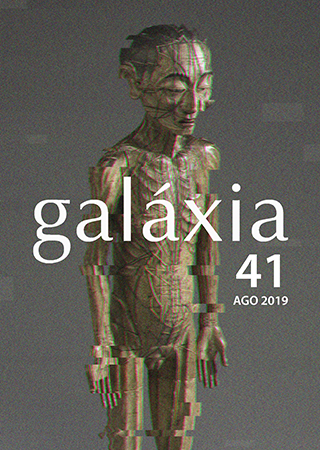Narrative and database in “All that is Solid”, a desktop documentary
Mots-clés :
documentary, narrative, database, e-wasteRésumé
This paper proposes to analyze “All that is Solid” by artist and filmmaker Louis Henderson, a documentary film that uses the desktop of the computer as a background for a new kind of narrative structure to unfold. This film will be looked at mainly through Lev Manovich ́s notion of the “database as a symbolic form” (MANOVICH, 1999) which the author attributes to the “age of the computer” when the database becomes the key form of cultural expression after the novel and cinema. It conducts a close reading of the film while pointing out several moments when database as a cultural expression surfaces, becomes dominant, and competes with conventional narrative forms of filmmaking. Through the basic system of organizing folders on his computer’s desktop Henderson reflexively unravels a complex story: as technological progress advances in the West, piles of obsolete computers are thrown away, sent to the coast of West Africa, and end up being recycled in waste grounds such as Agbogbloshie in Accra, Ghana. The film confronts us with a strange system of recycling, a kind of reverse, neo-colonial mining, where groups of Ghanaians search for residues of mineral resources in the computer waste materials sent from Europe. It tells us of the correlation between technology and race, and of the immateriality of the ‘Cloud’ in contrast to the heavy materiality of e-waste zones.
Téléchargements
Publié-e
Comment citer
Numéro
Rubrique
Licence
Os autores de artigos publicados mantêm os direitos autorais de seus trabalhos, licenciando-os sob a licença Creative Commons CC-BY, que permite que os artigos sejam reutilizados e distribuídos sem restrição, desde que o trabalho original seja corretamente citado. Os autores concedem para GALÁxIA. Revista Interdisciplinar de Comunicação e Cultura o direito de primeira publicação.



 Este obra está licenciada com uma Licença
Este obra está licenciada com uma Licença 